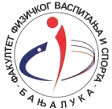SportLogia
Vol. 11, Issue 1, June 2015.
USE OF DIETARY SUPPLEMENTS AMONG ELITE ATHLETES
Elma Omeragić1, Jasmina Đeđibegović1, Miroslav Sober1, Aleksandra Marjanović1, Mirza Dedić1, Haris Niksić1, and Mahir Fidahić2
1Faculty of Pharmacy, University of Sarajevo, Bosnia and Herzegovina
2Medical Faculty, University of Tuzla, Bosnia and Herzegovina
SHORT SCENTIFIC ARTICLE
doi: 10.5550/sgia.151101.en.005O
UDC: 613.2:796.4
Summary
Many athletes use supplements in their diet as part of regular training or competition, thus enabling more intense training by encouraging faster recovery between workouts, minimizing interference caused by disease or injury and increasing competitive performance. These supplements, unlike medications, are not subject to rigorous efficiency and safety checks and tests. There is a risk with regard to those supplements which include positive doping test result as a consequence of presence of the prohibited substances not listed in the declaration of the preparation.
The aim of this study was to examine the use of supplements among elite athletes by analyzing the forms for doping control, issued by the Agency for Anti-doping control of Bosnia and Herzegovina, performed in the period from 2010 to 2012. The study includes supplements whose use was reported by athletes in the period of the last 7 days (prior testing).
The study results indicate the frequency of dietary supplements use of 34.5%. The most dominant group among users of dietary supplements were men aged between 18 and 29 years. From 152 users of dietary supplements 62.3% of them have used more than one product. The number of used supplements was an average of 2.9±2.8 products. Amino acids and proteins are the most commonly used dietary supplements.
This study confirmed excessive use of dietary supplements among elite athletes and pointed to the need of necessary education and ensuring the availability of scientific and unbiased information, about the benefits and risks of dietary supplements use, to athletes.
Key words:athletes, dietary supplements, sport.
References
Dietary Supplement Health and Education Act of 1994. (2013). Washington, DC: U.S. Food and Drug Administration. Retrived from: http://www.fda.gov/RegulatoryInformation/Legislation/FederalFoodDrugandCosmetic
ActFDCAct/SignificantAmendmentstotheFDCAc/ucm148003.htm
Dikić, N., Suzić, J., & Radivojević, N. (2010). Upotreba suplemenata i lijekova u sportu: Šta sportisti zaista koriste? [The use of supplements and drugs in sport: What athletes actually use?]. Sportska medicina, 8, 1–9.
Maughan, R. J. (2005). Contamination of dietary supplements and positive drug tests in sport. Journal of Sports Sciences, 23(9), 883–889. doi: 10.1080/02640410400023258![]() ; PMid: 16195040
; PMid: 16195040
Maughan, R. J., Doug, S. K, & Trevor, L. (2004). Dietary supplements. Journal of Sport Science, 22, 95–113.
doi: 10.1080/0264041031000140581![]() ; PMid: 14971436
; PMid: 14971436
Melvin, H. W. (2005). Dietary Supplements and Sports Performance: Amino Acids. Journal of the International Society of Sports Nutrition, 2(2), 63–67.
Molinero, O., & Marquez, S. (2009). Use of nutritional supplements in sport: risks, knowledge and behavioural-related factors. Natur Hosp, 24(2), 128–134. doi: 10.1186/1550-2783-2-2-63![]() ; PMid: 18500957; PMCid: PMC2129148
; PMid: 18500957; PMCid: PMC2129148
Nieper, A. (2005). Nutritional supplement practices in UK junior national track and field athletes. Br J Sports Med, 39, 645–649. doi: 10.1136/bjsm.2004.015842![]() ; PMid: 16118303; PMCid: PMC1725305
; PMid: 16118303; PMCid: PMC1725305
Tian, H. H., Ong, W. S., & Tan, C. L. (2009). Nutritional supplement use amoung university athletes in Singapore. Singapore Emd J, 50, 165–172.




